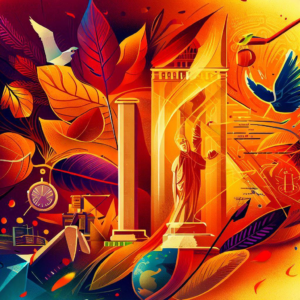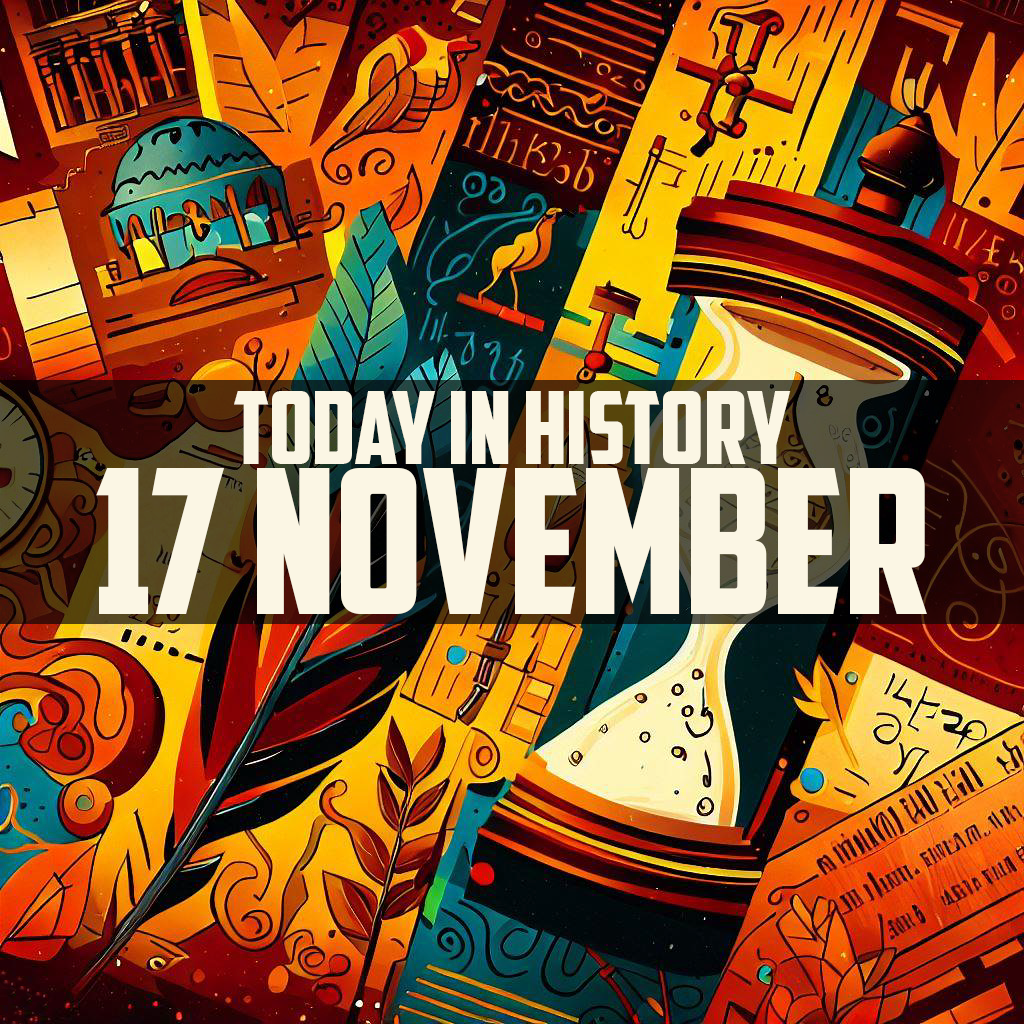The 17th of November has observed numerous groundbreaking events over the years. These occurrences have played an indispensable role in shaping political, cultural, and scientific realms. This day provides a captivating glimpse into the evolution of human societies and advancements. Let’s delve deeper into some of the most significant events that transpired on 17 November throughout history.
Today in History: 17 November

1. 1558: Elizabeth I Ascends to the English Throne
On this day, Elizabeth I, the daughter of King Henry VIII and Anne Boleyn, became the queen of England and Ireland after the death of her half-sister Queen Mary I. Her reign, which would last until 1603, is known as the Elizabethan Era, during which the arts, especially theatre with figures like William Shakespeare, thrived. England also saw significant expansion overseas, laying the foundations of the British Empire.
2. 1800: The United States Capitol Building Opens
Originally designed by William Thornton, the U.S. Capitol in Washington, D.C., opened its doors. It has since housed the legislative branches of the U.S. federal government, the Senate and the House of Representatives. Over the years, the building was expanded and reconstructed, reflecting the growth and challenges faced by the nation.
3. 1869: Suez Canal Inaugurated
A significant achievement in engineering, the Suez Canal, connecting the Mediterranean Sea to the Red Sea, was officially opened. This waterway offered a more direct route between Europe and Asia, drastically reducing the journey time for ships and fostering global trade.
4. 1970: The Soviet Union’s Luna 17 Lands on the Moon
The Luna 17 spacecraft delivered the Lunokhod 1 rover, the first remote-controlled robot to land on another world. Over the next 11 lunar days, the rover traveled over 10 km, transmitting extensive images and data back to Earth.
5. 1558: The Church of England Reestablished
Following her accession, Queen Elizabeth I reestablished the Church of England separate from the Roman Catholic Church, ensuring Protestantism’s dominance in England. The Elizabethan Religious Settlement laid down the principles that would define the Church for generations.
6. 1973: Watergate Scandal: U.S. President Richard Nixon Assures the Public
In a televised question-and-answer session with 400 Associated Press managing editors, Nixon asserted, “People have got to know whether or not their President is a crook. Well, I’m not a crook.” The scandal would escalate, leading to his resignation in 1974.
7. 1993: United States House of Representatives Approves the North American Free Trade Agreement (NAFTA)
NAFTA, a trilateral trade agreement between Canada, Mexico, and the United States, was aimed at promoting trade by eliminating tariffs. It reflected the increasing globalization of the world economy in the late 20th century.
8. 1603: Sir Walter Raleigh Goes on Trial
Accused of treason against King James I, Sir Walter Raleigh, an English explorer, and poet, went on trial. He was later imprisoned in the Tower of London, where he would pen many of his works.
9. 1903: The Russian Social Democratic Labor Party Splits
The party divided into two factions: the Bolsheviks led by Vladimir Lenin and the Mensheviks. This schism set the stage for the ideological and political battles that would culminate in the Russian Revolution of 1917.
10. 1962: President Kennedy Dedicates Dulles International Airport
Named after John Foster Dulles, the 52nd Secretary of State, the airport in Washington, D.C., was dedicated by President John F. Kennedy. The iconic Eero Saarinen-designed main terminal building is recognized worldwide.
11. 1558: The New Testament of the “Geneva Bible” Published
Regarded by some as history’s first study Bible, the Geneva Bible contained extensive footnotes and became one of the most popular versions of its time. It’s notably the Bible carried by the Pilgrims on the Mayflower.
12. 1839: Giuseppe Verdi’s First Opera, “Oberto,” Premieres
The opera, which launched the career of one of the greatest composers of the 19th century, debuted in Milan. Verdi’s works would come to define the Italian operatic tradition.
13. 2019: Protests Over Gas Prices Erupt in Iran
Nationwide demonstrations erupted in Iran after a sudden fuel price hike. This marked one of the most significant challenges to the Iranian government, with the authorities deploying stringent measures in response.
14. 1997: In Luxor, Egypt, Sixty-Two Tourists are Killed
In a horrific act of terror, Islamist militants attacked the Temple of Hatshepsut, resulting in the deaths of numerous foreign tourists. The attack significantly impacted Egypt’s tourism industry.
15. 2000: Alberto Fujimori Removed as President of Peru
Facing allegations of corruption and human rights abuses, Fujimori was removed from office, ending a decade-long rule characterized by both economic reforms and controversial authoritarian measures.

Conclusion:
November 17 is replete with events that have left an indelible mark on global history. From political upheavals to scientific milestones, from cultural shifts to economic transformations, this day underscores the ever-evolving nature of human civilization. Understanding these events and their contexts deepens our appreciation of our shared past, providing insights for a brighter future.
